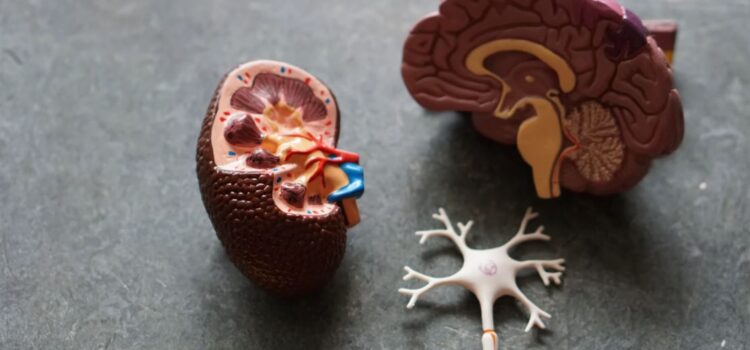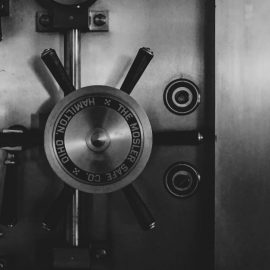

This article is an excerpt from the Shortform book guide to "Awaken the Giant Within" by Tony Robbins. Shortform has the world's best summaries and analyses of books you should be reading.
Like this article? Sign up for a free trial here .
What are neuro associations? Why do we often decide not to do things that we know would benefit us? Why do we snack on chips when we know fruit is better for us?
The answer lies in our pain and pleasure neuro associations. The driving force behind all of our decisions—and, thus, our actions—is the motivation to avoid pain and seek pleasure. Understanding our neuro associations can help us to understand why we do the things we do and prevent us from making bad decisions in the future.
Learn more about neuro associations below.
Neuro Associations, Explained
The reason we make bad decisions or engage in bad habits is all down to pain and pleasure neuro associations. When we indulge in a junk-food habit, it’s because we gain pleasure from munching on salty snacks, and we associate pain with eating veggies instead. There are different forms of pain (such as inconvenience and humiliation) and pleasure (such as ecstasy and comfort). Generally, fear of pain or loss is a stronger motivator than the desire for pleasure or gain—in other words, you’ll continue to eat junk food if your love of chips isn’t as strong as your aversion to healthy food.
In this article, we’ll discuss the ways that pain and pleasure neuro associations like this can prevent you from reaching your goals and living the life you want. First, let’s look at what, exactly, these associations are and how they form.
Recognize How Your Neuro-Associations Cause Poor Decision-Making
Not only do your pain and pleasure neuro-associations influence all of your decisions—by motivating you to avoid pain and seek pleasure—but they are also strong enough to withstand any logic that contradicts them. This means that your associations can drive you to engage in self-destructive behavior and poor decision-making against logic and your better judgment. Furthermore, since neuro-associations are subconscious, you often can’t figure out why you keep acting illogically.
For example, if you watched your parents live lavishly off credit—and you never saw them deal with any negative consequences from the habit—you may associate credit with happiness and luxury. This association may, without you even realizing it, cause you to rely heavily on your credit card as you seek the pleasure you derive from using it, despite any advice and information from your financial advisor.
Ultimately, if you don’t understand the power of pain and pleasure associations to motivate your every action, including your decisions, you can’t take control over your behavior, and you end up perpetually reacting to things around you instead of acting of your own will.
Understand That Mixed Associations Cause Self-Sabotaging Behaviors
Sometimes the problem isn’t one disempowering neuro-association but rather a harmful combination of mixed associations—as in, you associate both pain and pleasure with the same thing. When your brain gets these mixed signals, it becomes confused and can trigger self-sabotaging behaviors that are partially driven by positive associations and partially by negative ones. For example, many people have mixed associations about money:
- On the positive side, they associate money with security, luxury, control, and the ability to help people.
- On the negative side, they associate money with greed, complacency, shallowness, and fear of being judged or manipulated by others.
If you have mixed associations with money, your positive neuro-associations with money may motivate you to increase your income by picking up a side job. At the same time, your negative neuro-associations may sabotage your efforts by making you reluctant to follow through and actually pick up shifts at your side gig.
Know That Bad Habits Are Wired Into Your Brain
As we talked about, your neuro-associations can subconsciously influence your active decision-making. Additionally, you can develop neural pathways that turn a negative emotion or action into a habit, causing you to engage in that behavior without even thinking about it. This is why willpower alone is inadequate to make lasting change, because it does not eliminate the neuro-associations driving your behavior.
Although it’s difficult to fight against the force of that habit to implement a more positive behavior, it is possible. We’ll explain in detail how to recondition these bad habits in the next chapter. A positive note: Research shows that when you stop indulging in a frequent behavior, the neural pathway actually weakens, reducing its power over you.
Be Aware That Your Brain Can Make Mistakes When Creating Neuro-Associations
We’ve talked about several ways your neuro-associations can cause problems, but sometimes the root of the issue is that the neuro-association itself is inaccurate. Your brain can make mistakes when it interprets your experiences, creating false associations that reinforce bad behavior or impede positive behavior.
When you experience significant pain or pleasure, your brain looks for a cause of this feeling based on these criteria:
- Is there something unique or unusual about the circumstances that brought on the pain or pleasure?
- What was happening at the same time that the pain or pleasure occurred? If the two things happened simultaneously, it’s likely that one caused the other.
- Does the unique, simultaneous thing happen consistently with the feeling of pain or pleasure? If your brain detects a recurring pattern, then it will conclude that it has found the cause of your emotion.
Although these criteria are fairly logical, they’re not fool-proof: Your brain can easily falsely generalize how consistently a potential cause is linked to the emotion. (Shortform example: If you get a stomach ache after eating cheese two or three times, your brain may assume that the cheese is the cause, when it could be merely a coincidence.) Given how powerful associations are in your decision-making and behavior, there’s a real danger that false neuro-associations can lower your quality of life because they cause you to act based on wrong information. This is why it’s critical to your growth and success that you evaluate and question your associations.

———End of Preview———
Like what you just read? Read the rest of the world's best book summary and analysis of Tony Robbins's "Awaken the Giant Within" at Shortform .
Here's what you'll find in our full Awaken the Giant Within summary :
- How to make transformational changes to your life through small adjustments
- How you create your destiny every time you start a sentence with “I am…”
- Strategies to take control of your thoughts and emotions






